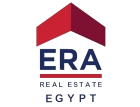Unlocking the Secrets of investing in Egypt real estate: Where to Invest, What to Buy, and How to Profit

Looking to unlock the secrets of investing in Egypt Real Estate? Look no further! In this article, we will guide you through the ins and outs of investing in the Egyptian real estate market, helping you make informed decisions and maximize your profits.
Egypt, with its rich history and stunning landscapes, offers a plethora of real estate opportunities for savvy investors. From luxurious beachfront properties in Sharm El Sheikh to historic homes in Cairo’s bustling city center, there’s something for everyone.
But where should you put your hard-earned money? We’ll explore the hottest investment locations, including the up-and-coming New Administrative Capital and the picturesque Red Sea Riviera. Our expert analysis will reveal the best areas to invest in and the potential returns you can expect.
Moreover, we’ll delve into the types of properties that are in high demand, whether it’s apartments, villas, or commercial spaces. Plus, we’ll share tips on how to negotiate the best deals and avoid common pitfalls.
Get ready to uncover the hidden gems of Egyptian real estate. Let’s dive into this exciting journey together!
Challenges and Risks of Investing in Egypt Real Estate
Investing in Egypt real estate, like any investment, comes with its fair share of challenges and risks that potential investors should be aware of. One prominent challenge is the fluctuating economic climate in Egypt, which can impact property values and rental yields. Economic instability can lead to a lack of confidence among buyers and investors, resulting in slower sales and potentially lower prices. Investors must remain vigilant about economic indicators and be prepared for any market fluctuations that may arise, as these can significantly affect their investment strategy.
Another significant risk involves the legal and regulatory environment surrounding real estate transactions in Egypt. The process of buying property can be complex, and foreign investors may face additional hurdles such as navigating local laws and regulations. Issues such as property ownership rights, title disputes, and bureaucratic delays can complicate transactions. It’s essential for investors to conduct thorough due diligence and possibly engage local legal experts to ensure compliance with all regulations and to protect their investment from potential legal issues.
Additionally, the real estate market in Egypt can be highly competitive, particularly in popular areas. Investors may find themselves competing with both local and international buyers, driving up property prices and reducing potential profit margins. Understanding market trends and having a clear strategy can help mitigate these risks. Moreover, investors should be cautious about over-leveraging their finances, as this can lead to difficulties in maintaining cash flow if the market takes a downturn or if rental vacancies occur.
What is the ROI of Real Estate in Egypt?

Return on Investment (ROI) in the Egyptian real estate market can vary significantly depending on various factors, including location, property type, and market conditions. Generally, investors can expect an ROI of around 8% to 12% annually, which is relatively attractive compared to other investment options. However, these figures can fluctuate based on local demand and economic stability. In more established areas, such as Cairo or Alexandria, returns may be lower due to higher property prices, while emerging markets like the New Administrative Capital could offer higher yields as the area develops.
The rental market also plays a crucial role in determining ROI. In tourist hotspots, such as Sharm El Sheikh and Hurghada, short-term rental properties can yield significantly higher returns compared to long-term leases. Investors may find that vacation rentals attract premium pricing, especially during peak tourist seasons. On the other hand, in urban areas where demand for long-term rentals is high, consistent occupancy rates can ensure steady income and a reliable ROI.
Moreover, capital appreciation is another aspect to consider when calculating ROI. Properties in high-demand areas are likely to appreciate over time, allowing investors to benefit from increased property values upon resale. However, it’s essential to keep an eye on market trends and economic factors that could influence property values. Investors who buy strategically and hold onto their properties during growth phases can maximize their returns significantly.
Factors Driving the Growth of the Egyptian Real Estate Market
Several factors are contributing to the robust growth of the Egyptian real estate market, making it an attractive destination for investors. One of the primary drivers is the country’s growing population, which is expected to exceed 100 million in the coming years. This demographic shift creates a pressing demand for residential properties, commercial spaces, and infrastructure development. As urbanization continues to rise, the need for housing and services in both metropolitan and suburban areas becomes increasingly critical.
Another significant factor is the Egyptian government’s commitment to economic reform and infrastructure development. Initiatives such as the New Administrative Capital project are designed to alleviate congestion in Cairo and promote economic growth. The government is investing heavily in transportation, utilities, and public services, creating a favorable environment for real estate development. As new infrastructure projects take shape, property values in these areas are likely to increase, attracting both local and foreign investment.
Additionally, tourism remains a vital component of Egypt’s economy, driving demand for real estate, especially in coastal and historical regions. The government has been promoting tourism through various initiatives, including the development of resorts and recreational facilities. This focus on tourism not only boosts the hospitality sector but also creates opportunities for real estate investors looking to capitalize on short-term rental markets. The influx of tourists into Egypt can lead to higher occupancy rates and rental prices, further enhancing the appeal of investing in this vibrant market.

Popular Cities and Regions for Real Estate Investment in Egypt
When it comes to real estate investment in Egypt, certain cities and regions stand out due to their growth potential and market demand. Cairo, the capital city, remains the most popular destination for real estate investment. Its rich history, cultural significance, and dense population create a constant demand for housing and commercial spaces. The diverse neighborhoods in Cairo offer various investment opportunities, from luxury apartments in Zamalek to affordable housing in Nasr City, catering to a wide range of buyers and renters.
Another up-and-coming area is the New Administrative Capital, which is being developed as a modern urban center to ease the burden on Cairo. This ambitious project is expected to host government buildings, foreign embassies, and residential complexes, making it a prime location for future investments. As infrastructure continues to develop and businesses begin to move into the area, early investors may benefit from significant capital appreciation as property values rise.
Sharm El Sheikh and Hurghada are two coastal cities that attract both tourists and investors alike. Known for their stunning beaches and vibrant tourism sectors, these cities offer lucrative opportunities for those interested in vacation rentals and resort properties. The demand for short-term rentals in these areas remains high, especially during peak tourist seasons, providing investors with the potential for substantial returns. Additionally, developments like El Gouna and the Red Sea Riviera are gaining popularity, attracting investors looking for high-end properties that cater to affluent buyers and tourists.
Types of Properties Available in the Egyptian Real Estate Market
The Egyptian real estate market offers a diverse range of property types, catering to various investor preferences and budgets. Residential properties, including apartments, villas, and townhouses, dominate the market. In urban areas, apartments are particularly popular due to their affordability and convenience for renters. They come in various sizes and styles, from modern high-rises to traditional buildings, allowing investors to choose properties that align with their investment goals.
Villas and luxury homes are also in demand, particularly in upscale neighborhoods and resort towns. These properties often come with added amenities such as private pools, gardens, and spacious living areas, appealing to both local families and expatriates. Investors seeking to capitalize on the high-end market may find opportunities in exclusive developments that offer stunning views and proximity to recreational facilities.
Commercial properties represent another lucrative investment option in Egypt. Retail spaces, office buildings, and industrial properties are in demand, particularly in urban centers and emerging business districts. As Egypt’s economy continues to grow, the need for commercial real estate will likely increase, making it a viable option for investors looking for long-term returns. Additionally, mixed-use developments that combine residential, commercial, and recreational spaces are gaining popularity, offering investors a chance to diversify their portfolios.

Considerations for Investing in Egypt Real Estate
Before diving into the Egyptian real estate market, investors must carefully consider several key factors to ensure a successful investment experience. First and foremost, understanding the local market dynamics is essential. This includes researching property prices, rental yields, and demand trends in specific neighborhoods. Investors should also familiarize themselves with the types of properties that are popular in the area and assess their long-term growth potential.
Another crucial consideration is financing options. Investors should evaluate their financial capabilities and explore various funding sources, including banks, private lenders, and investment partners. Understanding the terms and conditions associated with different financing options can help investors make informed decisions about their budgets and cash flow management. It’s also wise to have a contingency plan in place to address unforeseen expenses or economic fluctuations that could affect cash flow.
Lastly, investors should be aware of the importance of location when choosing a property. Proximity to schools, hospitals, shopping centers, and transportation links can significantly influence property values and rental demand. Areas undergoing infrastructure development or urban renewal are often prime targets for investment, as these factors can lead to increased demand over time. Conducting thorough research and potentially consulting with local real estate experts can provide valuable insights into the best locations for investment.
Legal and Regulatory Framework for Real Estate Investment in Egypt
Navigating the legal and regulatory landscape of real estate investment in Egypt is crucial for ensuring a smooth transaction process. Foreign investors are permitted to own property in Egypt, but there are specific regulations governing ownership rights and property titles. It’s essential for investors to understand the laws related to land ownership, especially concerning residential versus commercial properties. Engaging a local attorney who specializes in real estate can help mitigate legal risks and ensure compliance with all regulations.
The property transfer process in Egypt involves several steps, including obtaining necessary approvals, conducting title searches, and registering the property with the relevant authorities. Investors must be diligent in verifying that the property has a clear title and that there are no outstanding debts or legal disputes associated with it. Failing to complete these due diligence steps can lead to costly legal complications down the line.
Additionally, understanding the tax implications of real estate investment in Egypt is vital. Investors should be aware of property taxes, capital gains taxes, and any other fees associated with property transactions. Staying informed about tax regulations can help investors plan their financial strategies effectively and avoid unexpected liabilities. The Egyptian government has been making efforts to streamline the investment process and improve transparency, but it remains imperative for investors to stay updated on any changes in the legal framework.
Tips for Buying Real Estate in Egypt

Purchasing real estate in Egypt requires careful planning and strategic decision-making. One of the best tips for potential buyers is to conduct thorough research on the market before making any commitments. This includes analyzing property prices, rental yields, and the overall demand for various types of properties in different regions. Utilizing online resources, attending real estate exhibitions, and networking with local experts can provide valuable insights and help buyers make informed decisions.
Another essential tip is to engage a reputable real estate agent or consultant who is familiar with the local market. A knowledgeable agent can assist buyers in identifying suitable properties, negotiating favorable terms, and navigating the complexities of the buying process. It’s important to choose an agent who has a proven track record and positive reviews from previous clients. Their expertise can save buyers time and money while ensuring a smoother transaction.
Lastly, potential buyers should be prepared to negotiate. The real estate market in Egypt often allows for negotiation on property prices and terms. Investors should approach negotiations with a clear understanding of their budget and investment goals. Being open to discussions and flexible in terms can lead to more favorable outcomes. Additionally, conducting a thorough property inspection is crucial to ensure that the property meets expectations and to avoid unexpected repair costs after the purchase.
Strategies for Profiting from Egyptian Real Estate Investments
To maximize returns on real estate investments in Egypt, investors should consider several effective strategies. One of the most popular approaches is to focus on high-demand rental markets, particularly in tourist areas or urban centers. Short-term vacation rentals can yield significantly higher returns than traditional long-term leases, especially in locations frequented by tourists. Investors can leverage platforms such as Airbnb to attract travelers and maximize occupancy rates during peak seasons.
Another strategy involves investing in emerging markets or up-and-coming neighborhoods. As new infrastructure projects and urban developments take shape, these areas often present opportunities for capital appreciation. By identifying neighborhoods poised for growth, investors can acquire properties at lower prices and benefit from significant value increases as demand rises. Staying informed about government initiatives and urban planning can provide valuable insights into potential investment hotspots.
Finally, diversifying the investment portfolio can help mitigate risks and enhance overall returns. By investing in various types of properties—residential, commercial, vacation rentals—investors can spread their risk across different market segments. This approach allows investors to capitalize on multiple revenue streams while minimizing exposure to market fluctuations in any one area. Continuous monitoring of market trends and adapting investment strategies accordingly is essential to sustaining profitability in the Egyptian real estate market.
Conclusion: Is Investing in Egypt Real Estate Right for You?

Investing in Egypt real estate can offer exciting opportunities for both seasoned investors and newcomers alike. With a growing economy, diverse property options, and favorable ROI potential, the Egyptian market presents a compelling case for investment. However, prospective investors must carefully weigh the challenges and risks associated with this market, particularly the legal complexities and economic fluctuations.
Before making any investment decisions, it is crucial to conduct thorough research, engage local experts, and develop a clear strategy that aligns with personal financial goals. Understanding the local market dynamics, legal framework, and potential pitfalls can help investors navigate the landscape more effectively. By doing so, they can unlock the secrets of Egyptian real estate and position themselves for success.
Ultimately, whether Egyptian real estate is the right investment choice depends on individual circumstances, risk tolerance, and investment objectives. For those willing to invest the time and effort into understanding this vibrant market, the potential rewards can be substantial. As with any investment, informed decision-making and strategic planning are key to achieving success in the world of Egyptian real estate.


